
views
X
Expert Source
Wes PinkstonCertified Holistic Life Coach
Expert Interview. 18 January 2022.
Enjoying the Outdoors
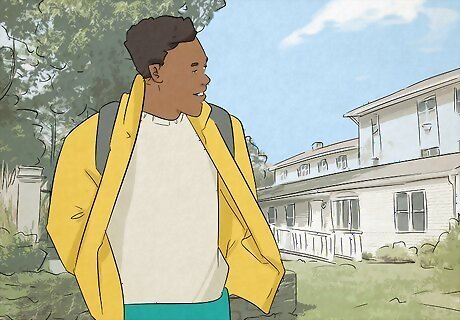
Take a walk. Stroll around the block, taking in some of your favorite sights of the neighborhood. Or walk a different route than you’re used to so you can see something new. If you have access to a car or public transportation, visit a park or forest preserve and do some walking there. Taking a walk, run, or hike when you're bored is a great way to get in nature and boost your mood. Carry a backpack to collect things you might want, like interesting rocks or leaves.

Go for a bike ride. Strap on a helmet and ride your bike through your city or town. If you don’t own a bike, many cities offer bike rentals or bike sharing programs. Try to bike down quiet, residential streets where you can enjoy the sights without stressing about the vehicle traffic around you.
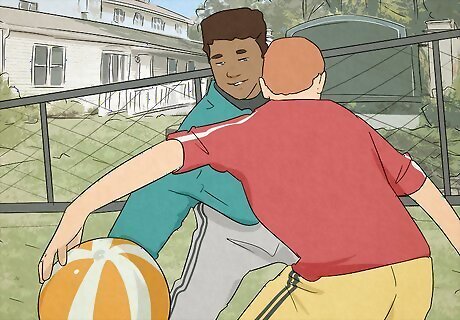
Play a sport. If you’re alone, kick a soccer ball around in the backyard or grab a basketball and practice free throws at the park. If there are friends you can play with, meet up at a park and play softball or frisbee. Or, try kickball, tennis, or volleyball.
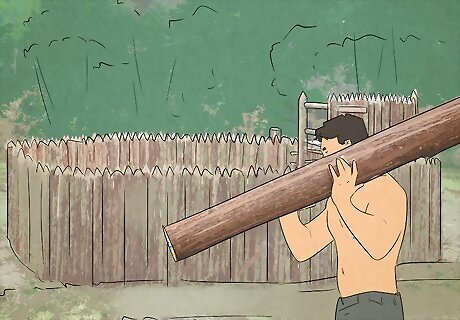
Build a fort. If you live near any wooded areas, scour the ground there for sticks or branches that have fallen. Stack and prop them up against a thick tree to build a little enclosure. If you’re really handy, you can print off blueprints from the internet and have someone help you construct a more intricate fort.

Work in the garden. Buy seeds or seedlings at your local hardware store or greenhouse and plant them around your house. Try planting herbs that you could later cook with, like oregano, mint, thyme, or parsley.

Look at the stars. If you live in a big city, it may be difficult to see any stars, but if they’re visible, go outside once it’s dark out and lay down on a blanket. You can print off constellation charts and try to find the patterns in the sky, or you can just lay back and relax. Go outside a bit early to catch the sunset before the stars come out.
Socializing with Others

Meet a friend at a cafe. Ask an old or a new friend to meet you at a casual spot that serves coffee, tea, or even ice cream. Sit down, talk, and catch up. If you want to keep the conversation going, offer to split a pastry or other treat with them.

Volunteer for a community project. See if your local food pantry, animal shelter, or soup kitchen need any volunteers. Local schools may need assistance with gardening or fundraising, so check with administrators to see if there’s anything you can help with. Look for something that aligns with your interests and skills. For example, if you’re not a people person, volunteer at an animal rescue organization. Consider starting your own project. Get friends and community members to help you pick up trash along the street or create a mural somewhere.
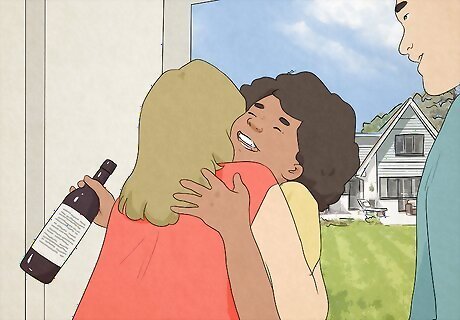
Visit an older relative or family friend. Go see a grandparent or aunt or uncle if they live nearby. Ask them to tell stories about what they did before today's electronics. Not only will this offer them a greater sense of bonding and connection with you, but you'll probably learn a lot from them.
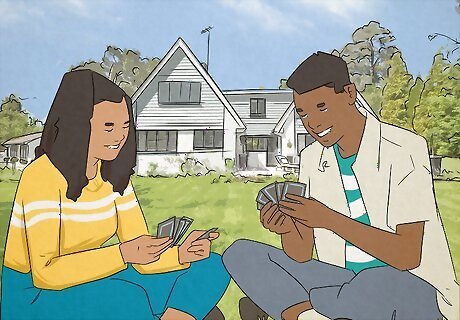
Play a board or card game. Gather everyone around the table and take turns playing each person’s favorite game. If you don’t have any board games, go on a group shopping trip and pick one out together, or just make your own from materials you have around the house. Toys like Legos or action figures can act as game pieces, and a small piece of cardboard folded into a cube can be a die.
Using Your Imagination

Read a book. Pick up a story you’ve been meaning to read, or reread an old one that you loved when you were younger. If there’s nothing at home that interests you, visit your local library. Pick out a few books at random or ask the librarian to help you find something specific. Find a book series that you love so you can feel accomplished when you finish it.
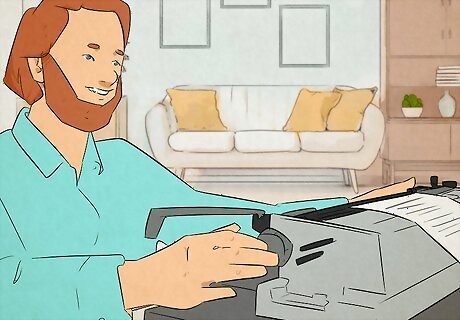
Write a story. Pull out a notebook and a pen and start writing. Either brainstorm ideas for a new story, or just dive right into an idea that’s forming in your mind. Try free-writing an entire page without stopping the movement of your pen. You may end up with something nonsensical, but it’s a good way to avoid second-guessing yourself during the creative process.
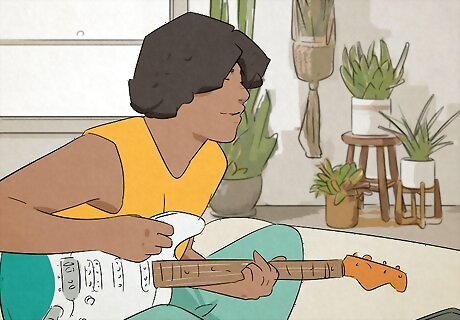
Play music. Pull out any old instruments that may be lying around the house – a guitar, a drum, or even an old player piano that's gathering dust. Find some sheet music to play, or just improvise a tune off the top of your head. Not only can playing music put you in a better mood, but it will also help to increase cognitive function and improve memory. You don't have to go out and buy a brand new instrument if you don't have one at home. Rent one, borrow one, or find an inexpensive one to play around with. You could even make a drum using a tin can and some construction paper or leather.
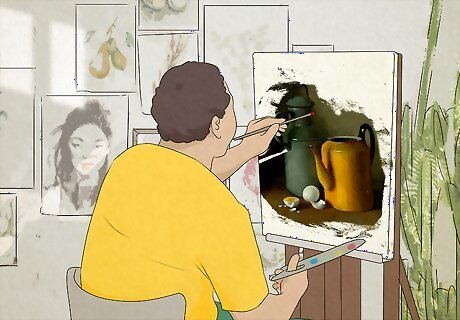
Draw or paint. Gather any art supplies you have lying around, like paper, canvas, paints, paintbrushes, charcoal, or just plain pencils. Find a sunny spot and draw an image that’s in your mind or paint a canvas to match your home’s decor. If you make your drawings or paintings small, you could give them away later as greeting cards.




















Comments
0 comment